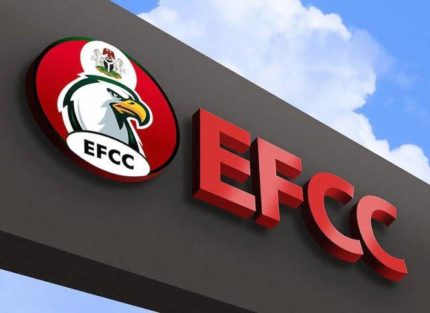The House of Representatives Committee on Public Accounts recently commended the Executive Chairman of the Economic and Financial Crimes Commission (EFCC), Mr. Ola Olukoyede, for his impactful reforms and preventive measures in addressing corruption and financial crimes. During a working visit to the EFCC’s headquarters in Abuja on October 25, 2024, committee members praised Olukoyede’s leadership in establishing new frameworks aimed at improving transparency and accountability.
Committee Chairman Hon. Salam Bamidele lauded Olukoyede’s efforts, highlighting the alignment between the EFCC’s mandate and the Public Accounts Committee’s mission to oversee government spending. Bamidele noted the significance of collaborative engagement, emphasizing that these reforms were crucial in combating Nigeria’s reputation for poor transparency and accountability. The chairman further underscored the need for sustained advocacy in promoting leadership education, recognizing that systemic change starts with informed and principled governance.
Strengthening Oversight and Accountability
Hon. Salam Bamidele explained that the Public Accounts Committee plays a critical role in ensuring that funds allocated by the legislature are utilized effectively. He asserted that the convergence of mandates between the EFCC and the Committee makes a strong case for a deeper collaboration. This partnership, Bamidele suggested, could facilitate the sharing of insights and resources to address systemic corruption more efficiently.
In pursuit of stronger accountability, the House recently expedited the passage of the Audit Bill, which aims to empower the Office of the Auditor General. According to Bamidele, this legislation will provide the office with both resources and capacity, enhancing its ability to prevent financial mismanagement. He expressed hope that the strengthened audit framework would help alleviate the EFCC’s burden, allowing the agency to focus on high-priority cases, thereby optimizing Nigeria’s anti-corruption landscape.
Challenges in Nigeria’s Judicial System
Addressing delays in Nigeria’s judicial system, Bamidele highlighted how protracted court cases undermine anti-corruption efforts. He voiced concern over cases that drag on for over a decade, leading to frustration and often diminishing the effectiveness of the anti-corruption crusade. To counteract this, Bamidele advocated for the establishment of special courts dedicated to financial crimes, which he believes would significantly reduce the time required to resolve such cases.
In addition to judicial delays, Bamidele raised the issue of abandoned projects across the nation. With an estimated 65,000 projects, valued at over N32 trillion, left incomplete, he emphasized the financial strain and lost opportunities these projects represent. He proposed collaboration with the EFCC to investigate the root causes of these abandoned projects, including potential mismanagement or misappropriation of funds, thus preventing further economic waste.
Olukoyede’s Focus on Prevention and New Fraud Control Framework For EFCC
In response, Olukoyede expressed his commitment to proactive measures in tackling corruption. Recognizing the limitations of enforcement, he highlighted the establishment of the Fraud Risk Assessment and Control (FRAC) directorate, a new EFCC initiative focused on real-time monitoring of funds in government agencies. This directorate conducts timely assessments of project financing and progress, aiming to prevent corruption before it occurs, rather than addressing it after the fact.
The EFCC chairman underscored that prevention, more than recovery, is essential for long-term anti-corruption success. Reflecting on the commission’s financial recoveries—amounting to over N260 billion and $75 million this year alone—Olukoyede lamented that such recoveries represent only a fraction of the actual stolen funds. He emphasized the need for support from reform-minded Nigerians to shift the focus toward preventive measures, ideally reducing the funds lost to corruption in the future.
Call for Legislative Support and Stringent Anti-Corruption Laws
Olukoyede urged legislators to support stronger anti-corruption laws, calling for reforms that enable the EFCC to act more decisively. He proposed measures such as holding public officials accountable if found living beyond their means, without the stringent burden of proof currently required. Furthermore, he advocated for policies barring individuals implicated in corruption from positions of authority, particularly within the judiciary, where integrity is paramount.
The EFCC chairman stressed the importance of stringent legislative measures to deter corrupt practices, arguing that such laws could expedite justice and empower the agency in its preventive mission. He also applauded the House for the recent passage of the Audit Bill, calling for the Senate’s concurrence to enhance oversight and accountability across Nigeria’s public financial landscape. Olukoyede concluded by reiterating his commitment to the anti-corruption cause, expressing optimism for Nigeria’s future if decisive action is taken.
Table of Contents
Discover more from OGM News NG
Subscribe to get the latest posts sent to your email.














